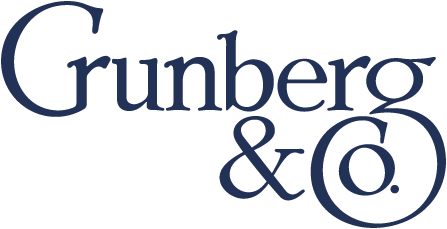In an ideal world, the costs of doing business can be covered by the proceeds of work already undertaken or goods already sold.
Unfortunately, we do not live in an ideal world. We live in the world of late payments, long gaps between paying for supplies and generating revenue from them, seasonal fluctuations, challenging trading conditions, the need for capital investments and new businesses that have not yet generated any revenue.
That means there is enormous scope for a chasm to open up between the costs of doing business and the funds available to meet those costs.
Business finance exists in a wide range of forms to close this gap and smooth the flow of money through a business.
The finance options that will be appropriate for different businesses will depend on the precise challenges they are facing, but can be broken down into the following broad categories:
Working Capital Funding
Working capital finance is the amount of money needed to cover the difference between the value of stock and debtors in your business and the amount of creditors you have.
Maintaining a healthy cash flow is vital for any business, but doing so can be challenging, even where sales are strong. Fortunately, there are several finance solutions to help in these circumstances, including credit cards, overdrafts, debtor financing and stock finance.
Finance for longer-term assets
Growing your business will often involve buying new assets, such as equipment, vehicles, machinery or premises. The costs of these items are often too large to be covered by general expenditure and finance is often the only viable way to continue with such plans. Examples include, commercial mortgages, business loans, hire purchase and leasing.
Start-up funding
Money is often the greatest hurdle for people wanting to start a new business, but there are various options available to people who are unable to fund a new venture out of their own pockets.
Options for start-ups, include business loans, family loans and investments, outside investment, soft lands and grants and business angels.
International Trade Finance
Trading internationally can put particular pressure on cash flow as a result of the large amount of time between sending and receiving goods and payment. Several dedicated finance options have been developed to deal with this challenge, including import loans and export finance schemes.
Alternative Finance Options
Traditional finance options will not suit every circumstance and the internet has enabled a range of alternative finance options to develop in recent years, with crowdfunding being the most notable example.
Simply looking for the easiest funding to obtain is unlikely to meet the needs of a business in the long term. Debts that cannot be repaid comfortably can signal the end for a business, while new shareholders with wildly different plans for the business can be similarly problematic.
In the last year, many businesses have taken on extensive debt through the various Coronavirus loan schemes.
It is important that businesses make preparations now to repay these loans as it may affect their ability to seek out additional finance in future.
Repaying a Bounce Back Loan
With large parts of the economy facing restrictions well into June, the Government is offering businesses support to repay the Bounce Back Loan via the Pay as you Grow’ (PAYG) initiative.
Under PAYG, businesses have the option to:
- Extend the length of the loan from six years to 10 years
- Make interest-only payments for six months, with the option to use this up to three times during the life of the loan
- Pause repayments entirely for up to six months.
PAYG is available to all borrowers from their first repayment and offers companies the flexibility to tailor their repayment schedule to meet the needs of their business.
Businesses do not have to use the PAYG initiative and can choose to make loan repayments as they see fit.
In some cases, it may be beneficial to repay the loan sooner to reduce any interest (fixed at 2.5 per cent per annum) on a Bounce Back Loan. Bounce Back Loans are not subject to early repayment fees.
Repaying a Coronavirus Business Interruption Loan (CBIL)
After the initial 12-month interest-free period ends, lenders should provide businesses with an outline of their repayment costs, factoring in interest.
Pricing varies amongst lenders, but interest rates beyond the 12-month interest-free period are likely to take into account the existence of a guarantee from the Government.
With a loan facility, it may be necessary to provide regular capital repayments, but lenders may be able to provide payment holidays subject to discussions with them.
Businesses who borrow under the CBIL scheme are also not subject to early repayment charges, should they choose to repay their financing before its term ends.
However, businesses remain 100 per cent responsible for paying the facility back, as well as interest and fees charged by the lender once the initial interest-free 12-month period ends.
When a business took out a CBIL, they agreed to be liable for the repayments, in the same way as any other type of credit agreement.
If a business is not able to pay back the loan, the lender will need to recover the debt from any personal guarantee used for the loan, up to 20 per cent of the loan value. The remainder is then covered by the Government’s 80 per cent guarantee.
For loans of less than £250,000, no personal guarantee was required and, in this case, the loss is covered by the Government up to 80 per cent of the loan value at the time.
Businesses can approach lenders to restructure a loan if they have issues meeting the prescribed repayment plan.
Businesses that need to restructure a loan, will need up to date figures, financial forecasts, profit and loss reports and a balance sheet before approaching their lender to demonstrate the difficulties they face.
Repaying the Recovery Loan Scheme
The new Recovery Loan Scheme is open from 6 April to 31 December 2021. It will offer businesses loans of between £25,000 – £10 million over a six-year loan period and is backed by an 80 per cent Government guarantee.
Despite Government backing, applications will be subject to full underwriting and affordability checks and unlike the other Government-backed loans there will be no interest-free period.
The information required by each lender to approve a loan varies but they typically require financial accounts for trading periods of between one and three years.
It is not yet known what repayments will be required from businesses via this loan, but it is suspected that this finance may have a higher rate of interest than other Government-backed loans.
How we can help
Business finance needs to be approached strategically and with a holistic view of the business and the needs of its owners.
A wide range of finance options exist and some of these are easier to obtain than others. They can usually also be configured in a near-infinite range of ways.
Identifying the right option for your business is not necessarily an easy task and so seeking advice can vitally important.
Please contact us today for advice on financing your business plans.





























